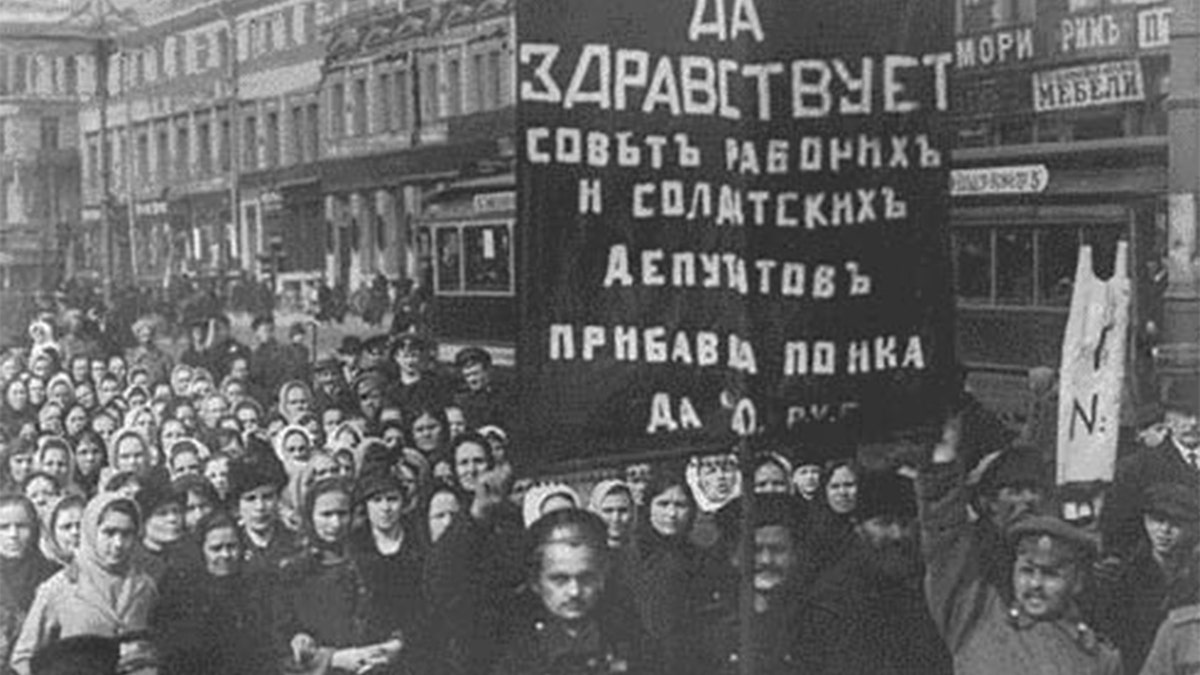Fox News Flash top headlines for March 8
Fox News Flash top headlines are here. Check out what's clicking on Foxnews.com.
On this day in history, March 8, 1917, the first phase of the Russian Revolution began in present-day Saint Petersburg.
The March Revolution (sometimes called the February Revolution because of the country’s Julian calendar), saw widespread protests against the czarist regime over lack of food.
For eight days, mass demonstrations unfolded, resulting in violent clashes with police. Russian Army forces eventually sided with the protesters and Czar Nicholas II abdicated the throne, effectively ending over three centuries of Romanov dynastic rule and the Russian Empire.

Revolutionaries protesting in February 1917.
A provisional government led by Prince Georgy Lvov took control, but it failed to address the country’s mounting problems: peasant land seizures, nationalist independence movements and increasing deaths in World War I.
Some 1,300 people were killed in the protests of March 1917.
In October, the Bolsheviks, a far-left political party inspired by the writings of Karl Marx and founded by Vladimir Lenin, overthrew the provisional government in a nearly bloodless coup.
CLICK HERE TO GET THE FOX NEWS APP
The Bolsheviks later became the Communist Party of the Soviet Union, and the revolutions of 1917 were instrumental in the creation of the Union of Soviet Socialist Republics (USSR).









































